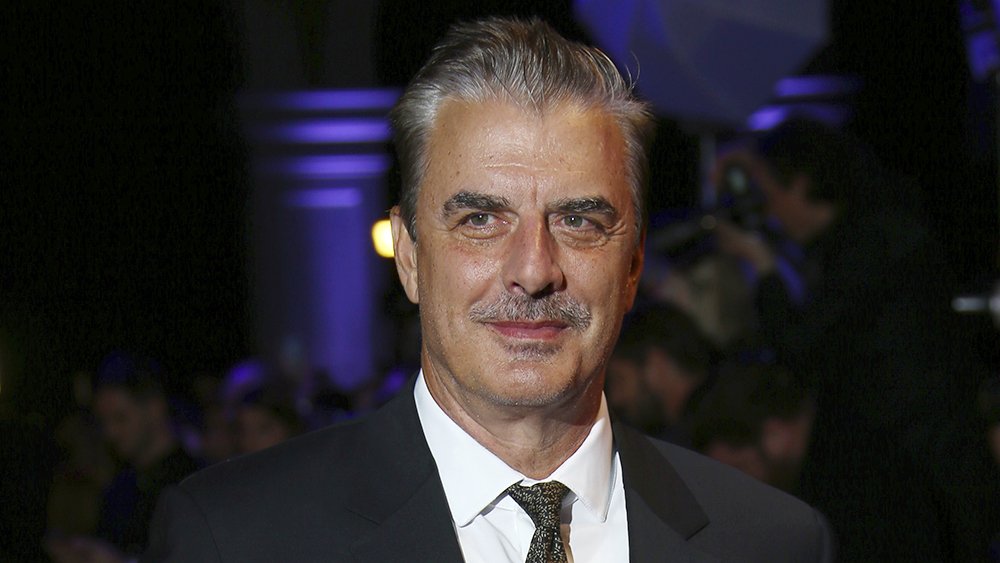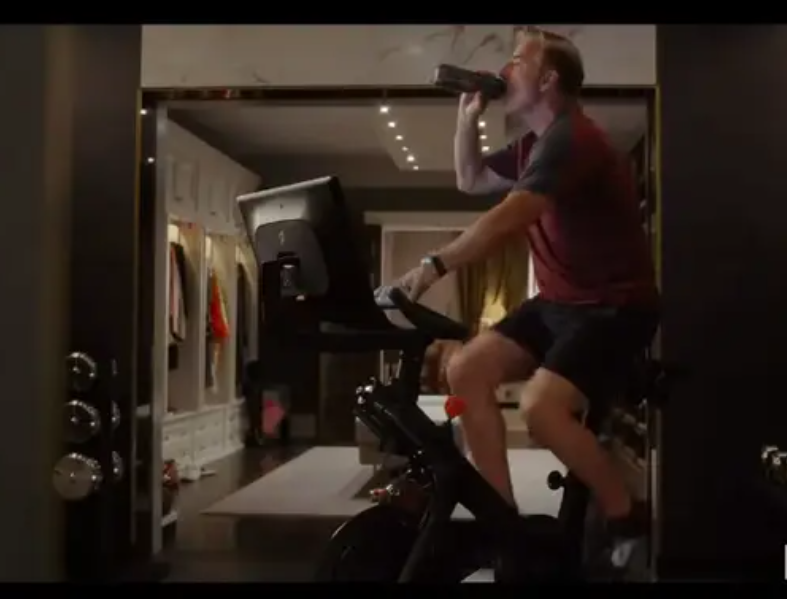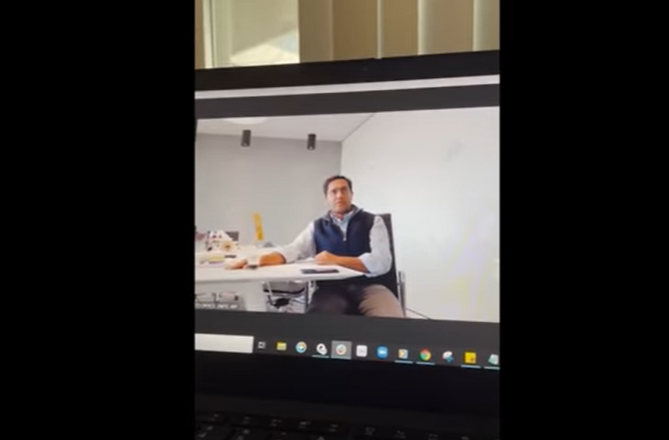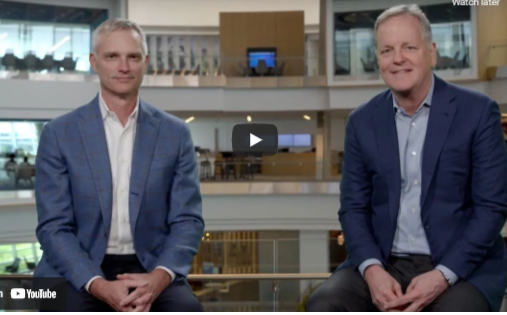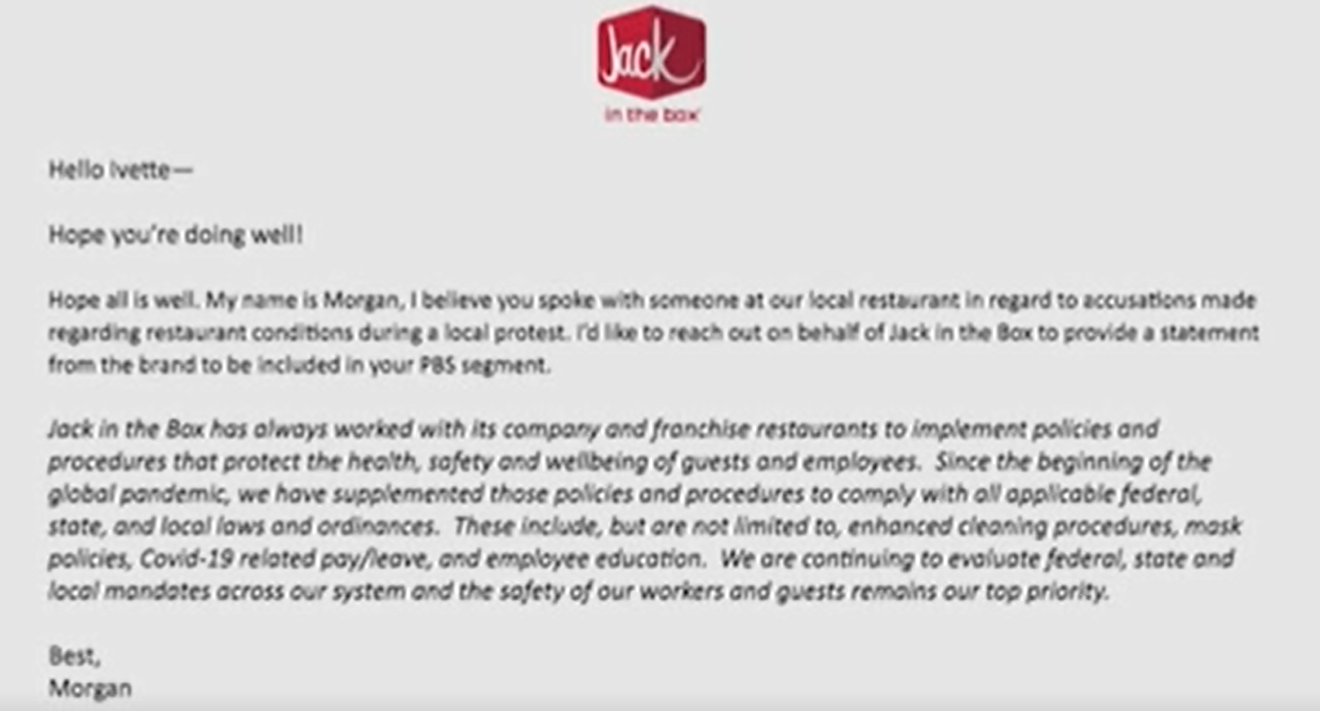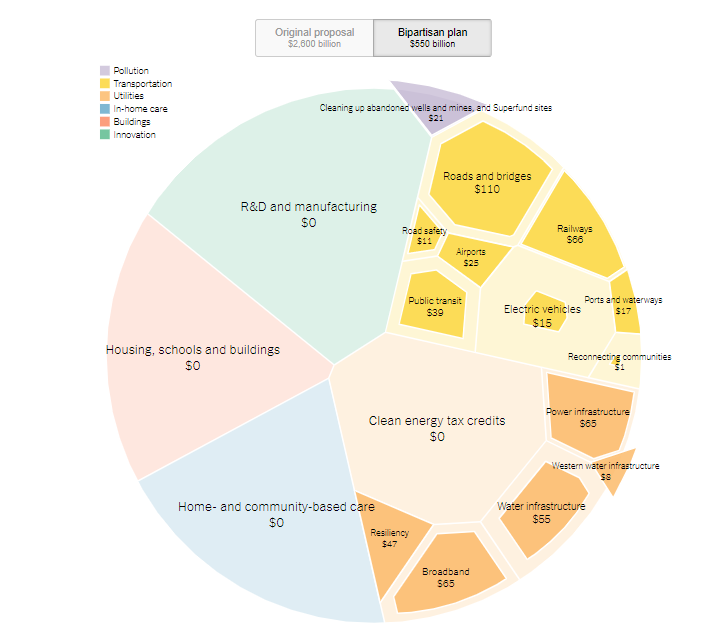Peloton CEO Addresses Difficult Times
Peloton was hot during the pandemic, barely keeping up with demand for bikes and treads. But sales have tumbled as consumers became more price sensitive and competition increased. The Sex in the City HBO reboot, And Just Like That, and Billions Season 6 episode didn’t help when they killed off lead characters during or after a vigorous workout on a Peloton bike. Company shares tumbled 76% in 2021.
CNBC reported that Peloton is pausing production, but Co-Founder and CEO John Foley denies the claim. In a statement (posted on the website as a “note” sent internally), Foley criticizes an internal leak and subsequent “speculative articles.” His tone is firm when he writes about legal action against the “leaker,” a warning to other employees. Trying to get ahead of more bad news, Foley admits that layoffs are possible, while complimenting the team. He chooses positive data to present: the number of users, workouts, and churn rate. He doesn’t include negative data about revenue or stock price.
The note is part defense and part cheerleader, as Foley props up employees—and the company—against a turbulent time in the company’s history. He demonstrates some integrity, humility, and vulnerability, but his leadership will continue to be taxed in the weeks ahead.
Foley’s full message follows (with the giant logo as it appears on the website):
We have always done our best to share news with you all first, before sharing with the public. This week, we’ve experienced leaks containing confidential information that have led to a flurry of speculative articles in the press. The information the media has obtained is incomplete, out of context, and not reflective of Peloton’s strategy. It has saddened me to know you read these things without the clarity and context that you deserve. Before I go on, I want all of you to know that we have identified a leaker, and we are moving forward with the appropriate legal action. But moving forward, I want to take a moment to talk about some of the changes with you directly.
As a public company that is in a pre-earnings “Quiet Period”, we are limited in what information we can share. However, we issued a pre-earnings press release earlier this evening about our preliminary Q2 results, in order to offer an initial and more accurate picture of our business performance.
As you have heard me and other leaders say over the past few months, we are continuing to invest in our growth, but we also need to review our cost structure to ensure we set ourselves up for continued success, while never losing sight of the important role we play in helping our 6.2+ million Members lead healthier, happier lives.
What this means for our team right now
In the past, we’ve said layoffs would be the absolute last lever we would ever hope to pull. However, we now need to evaluate our organization structure and size of our team, with the utmost care and compassion. And we are still in the process of considering all options as part of our efforts to make our business more flexible.
This team is made up of some of the smartest, most passionate, hard-working and KIND people I have ever met. You have each painted your masterpiece at Peloton in your own way, and your contributions matter. They always have, and they always will.
I am SO proud of everything we have accomplished together, and it pains me we are faced with these tough decisions. I know this is difficult, and I want to thank you for your patience as we work through these times together.
Rumors that we are halting all production of bikes and Treads are false
Notably, we’ve found ourselves in the middle of a once-in-a-hundred year event with the COVID-19 pandemic, and what we anticipated would happen over the course of three years happened in months during 2020, and into 2021.
We worked quickly and diligently to meet the demand head-on at a time when the world really needed us, in large part thanks to how hard you worked every day. We feel good about right-sizing our production, and, as we evolve to more seasonal demand curves, we are resetting our production levels for sustainable growth.
Connected Fitness is here to stay
This past quarter, our churn rate was 0.79%. This means that our Members are sticking with us, again thanks to your brilliance and continued innovation. Connected fitness provides the convenience people need to stay active and centered and will continue to be a key part of the future of fitness. In fact, just a few days ago, we recorded our highest ever number of daily workouts -- over 2.9M workouts.
I want to acknowledge that this does not answer all of the questions I am sure many of you have right now. But, I did want to share what we could at this time.
I know there is a lot of noise and anxiety in our environment right now, which is why I wanted to take this moment to provide some additional context for you all as we navigate the next few weeks together.
John
Activision Acquisition Announcements Omit Information
Microsoft’s acquisition of Activision significantly boosts the company’s prospects in the gaming space. In a statement, Microsoft said, “This acquisition will accelerate the growth in Microsoft’s gaming business across mobile, PC, console and cloud and will provide building blocks for the metaverse.” Games under assets now include millions of players of “Warcraft,” “Candy Crush,” “Call of Duty,” and others.
As expected, Microsoft’s announcement doesn’t include bad news about Activision—reported just the day before the acquisition. Rampant sexual harassment allegations resulted in more than three dozen terminated and another 40 disciplined employees. The day after the acquisition, the Wall Street Journal reported, “Activision Blizzard’s Workplace Problems Spurred $75 Billion Microsoft Deal.” Similarly, Activision CEO Bobby Kotick’s email to employees fails to mention that the company may have been in trouble before the agreement.
As usual, what is not said is often as important as what is said. Both messages announce good news and omit the bad news. This story illustrates that positive business messages are also persuasive messages.
Misrepresenting COVID-19 Study Findings
A study about COVID testing in schools is criticized for its authors’ conclusions. Researchers at Duke, in collaboration with the North Carolina Department of Health and Human Services, studied the “test-to-stay” approach for schoolchildren. With this approach, if a child tests negative after being exposed to someone who tests positive, that child can go to school. Researchers found this strategy to be effective in getting kids back to school—without increasing COVID transmissions.
The trouble, described in a Wall Street Journal opinion piece, is that authors concluded, “in schools with universal masking, test-to-stay is an effective strategy.” The writers explain their thinking:
“That invites readers to assume that test-to-stay doesn’t work without forced masking. But since they studied no unmasked schools, this conclusion is baseless. An honest report would either have said so or not mentioned masking at all.”
The writers believe that study authors are pushing their own agenda for schools to require masking. This is a good example of a study interpretation that is technically correct but omits important information for a fair comparison. In such cases, researchers might hurt their own credibility. On the other hand, do people assume, as the writers say, that “test to stay” doesn’t work in schools without mask mandates?
British PM Responds to Criticism
During the height of 2020 COVID-19 lockdowns in England, Prime Minister Boris Johnson hosted a party. An email (below) from his private secretary invited more than 100 staff members to "bring your own booze!" to the lawn party held at Johnson’s residence. Between 30 and 40 people gathered, despite restrictions until a week and a half later, when only six people were allowed to gather. This wasn’t the only party: another was held in December during lockdowns.
A video of the House of Commons shows political leaders criticizing Johnson; some are calling for his resignation. Johnson says he considered the party a work event. The culture of this setting is so different from U.S. government meetings, where it would be inappropriate to respond to speeches.
Here is Johnson’s response to the criticism. He uses several persuasive tactics: apologizing (with a British “s”), empathizing, and taking responsibility. He tries to demonstrate several character dimensions: compassion, humility, and accountability, particularly. We’ll see what happens next.
I want to apologise. I know that millions of people across this country have made extraordinary sacrifices over the last 18 months.
I know the anguish they have been through—unable to mourn their relatives, unable to live their lives as they want or to do the things they love.
I know the rage they feel with me and with the government I lead when they think in Downing Street itself the rules are not being properly followed by the people who make the rules.
And though I cannot anticipate the conclusions of the current inquiry, I have learned enough to know there were things we simply did not get right and I must take responsibility.
No 10 is a big department with a garden as an extension of the office which has been in constant use because of the role of fresh air in stopping the virus.
When I went into that garden just after six on 20 May 2020, to thank groups of staff before going back into my office 25 minutes later to continue working, I believed implicitly that this was a work event.
With hindsight I should have sent everyone back inside. I should have found some other way to thank them.
I should have recognised that even if it could be said technically to fall within the guidance, there are millions and millions of people who simply would not see it that way, people who have suffered terribly, people who were forbidden from meeting loved ones at all inside or outside, and to them and to this house I offer my heartfelt apologies.
All I ask is that Sue Gray be allowed to complete her inquiry into that day and several others so that the full facts can be established.
Quotes from the Elizabeth Holmes Trial
A jury found Elizabeth Holmes guilty of four of 11 charges related to her start-up, Theranos. The jury was convinced that she defrauded several investors who bought into her blood-testing company, but they were not convinced that she defrauded patients.
A Wall Street Journal article, “The Elizabeth Holmes Trial: The 10 Most Quotable Moments,” reveals persuasive language used throughout the trial. Despite valiant arguments on both sides, jurors had a difficult time deciding this trial. They couldn’t agree on three of the 11 counts, causing the trial judge to instruct the group to try harder to reach agreement, but in the end, they did not.
A few of the quotes demonstrate Holmes’ persuasive communication skills. Jim Mattis, former U.S. defense secretary, Theranos board member, and four-star general, said, “There just came a point when I didn’t know what to believe about Theranos anymore.” The CEO of Safeway noted, “When she presented to our board, when she was talking, she owned the room.”
Holmes, however, didn’t own the courtroom. Two of her quotes are included in the list: “I wanted to convey the impact the company could make for people and for healthcare” and “He impacted everything about who I was, and I don’t fully understand that.” She tried to explain her passion for the company and the abuse she suffered from her former deputy and partner. She will get another chance to convince jurors when she likely appeals the decision.
A Good Apology
Sorry Watch assessors gave rave reviews to an apology from DisCon III, a science fiction convention. Sorry Watch identifies the following criteria for a good apology:
Use the word “sorry” or “apologize.”
Name the offense. (Not “what happened.”)
Take responsibility.
Show you understand the impact.
How will you ensure this doesn’t recur?
Make amends.
These suggestions align with academic research on apologies described in Chapter 7 of Business Communication and Character. (For example, see Roy J. Lewicki, Beth Polin, and Robert B. Lount Jr., "An Exploration of the Structure of Effective Apologies," Negotiation and Conflict Management Research 9 (2016): pp. 177–196).
DisCon accepted sponsorship from Raytheon, a defense contractor, and not everyone agreed with the choice. In addition to conference organizers, award recipients, who were unaware of the sponsorship, suffered harsh criticism.
The conference chair stepped up, describing what happened, acknowledging the impact, taking responsibility, and identifying future actions. Other than apologizing, amends or reparations are difficult to imagine in this situation. Mary Robinette Kowal did what she could and demonstrated several character dimensions, for example, accountability, humility, vulnerability, compassion, and courage.
I am Mary Robinette Kowal, and I was the chair for DisCon III. I take full responsibility for accepting Raytheon Intelligence and Space as a sponsor, and I apologize for doing so.
The decision tree that led us to this point is filled with branches that sound like excuses for my own culpability. At the root of it is simply that in accepting funding from Raytheon Intelligence and Space and partnering with them for the members’ red carpet event, I was wrong.
That choice has caused harm and damage to people: the finalists, who were unaware; the people in our communities; the members and staff of Worldcon, who trusted me to make good choices.
I am sorry that I let you all down.
DisCon III is making an anonymous contribution to an organization dedicated to peace, equal to the amount we received from Raytheon. I am also personally contributing to the same organization.
The delay in responding added to the distress that we caused. For this, I ask your forgiveness. We needed to have conversations that were slowed by post-convention travel.
For the past several days, we have read your comments in email and on social media. Thank you for sharing them with us and trusting that you would be heard and taken seriously. Your honesty and sincerity are what make our community a better place.
Future conrunners can avoid our mistakes by:
Developing a sponsorship policy for your organization that reflects the values and concerns of our community.
Creating a robust plan for doing due diligence on potential sponsors.
Creating a mission and value statement against which to measure actions.
We did none of those. Our Code of Conduct says that DisCon III aims to build an inclusive community for all fans. This sponsorship did not achieve that goal.
I cannot erase the harm that my actions caused. This happened on my watch. It is my fault, and I am deeply sorry for the pain I caused.
Signed,
Mary Robinette Kowal
Managing Hybrid Meetings
A Wall Street Journal article describes ways to “level the playing field” for remote and in-person workers. Despite high-end video and audio technology in larger meetings, employees have a tough time seeing and hearing each other and feeing included. Of course, the same applies to classrooms.
Some companies ask employees in person to log onto the meeting with their laptops, so remote workers see everyone’s face. Asking people to raise their hand to speak—whether in person or online—also gives everyone an equal chance to participate.
Companies are ramping up amenities at work, for example, childcare, gyms, and pharmacies, to lure employees back to the office. Managers continue efforts to help employees manage meeting burnout and “Zoom fatigue,” for example, block parts of Fridays.
Some of these challenges aren’t new. Too much email, information overload, and not enough actual work time are problems whether we’re home or in the office
Persuading People to Get Vaccinated
Physicians at Harvard Medical College weigh in on what does not—and what might—encourage people to get a coronavirus vaccine. In a New York Times opinion letter, they write, “providing more, frightening information intended to change their beliefs is ineffective for many or may even cause further entrenchment against vaccination.” In other words, data, or a logical argument, doesn’t work.
They consider a recent study about the Human Papillomavirus Vaccination (HPV). Surprisingly, women who had cervical cancer were no more likely to get their children vaccinated, and women who had a cancer “scare” were only slightly more likely than those who didn’t have cancer to get their children vaccinated.
From this study, the authors conclude that knowing someone who had COVID-19 or hearing stories about people who had the disease won’t convince people to get vaccinated. Although the doctors refer to this as “more information,” I would consider this an emotional appeal, depending on how “stories” are described.
Regardless, the authors suggest relying on methods that seem to work: negative incentives. Offering lottery tickets and other types of payments hasn’t influenced large numbers of people. Only threats—for example, if you don’t get vaccinated, you can’t come to work (a type of incentive) may be the best approach for now.
In his book Think Again, Adam Grant has other ideas, but they require more time and personal relationships—asking questions and giving people a choice.
Chris Noth and Peloton Respond to Sexual Assault Accusations
Peloton can’t seem to catch a break. Chris Noth, who played Mr. Big on the Sex in the City revival, first died on the show after using the bike, and then, after appearing in what seemed like a victorious response commercial, was accused by three women of sexual assault.
In a statement, Noth vehemently denied the claims:
"The accusations against me made by individuals I met years, even decades, ago are categorically false. These stories could've been from 30 years ago or 30 days ago—no always means no—that is a line I did not cross,” and
"The encounters were consensual. It's difficult not to question the timing of these stories coming out. I don't know for certain why they are surfacing now, but I do know this: I did not assault these women.”
Peloton removed the ad, and a spokesperson said, "Every single sexual assault accusation must be taken seriously. We were unaware of these allegations when we featured Chris Noth in our response to HBO's reboot. As we seek to learn more, we have stopped promoting this video and archived related social posts.”
I’m guessing that HBO is glad the writers killed off Noth’s character. For Peloton, the news is probably more attention than the company wants. It’s certainly more than Chris Noth wants.
Ask for Help in Rich Media Channels for Better Results
New research confirms what you might already think: you are most likely to get the results you want when you ask someone in person.
Experiments indicate that people are more compliant when communication takes place over richer media channels. Requests made face-to-face are most likely to be fulfilled. Second best is Zoom and then phone calls. Email and text requests are least effective. Survey participants thought richer channels would be more effective, but they underestimated the differences.
Cornell University researcher Vanessa Bohns sums up the results:
“We tend to think people will weigh the costs and benefits and make a measured decision about whether to agree to something, saying ‘yes’ only if they really want to. But in fact, people agree to all sorts of things, even things they’d rather not do, because they feel bad saying ‘no’ in the moment.”
Of course, this raises issues of integrity. Taking advantage of people who feel uncomfortable refusing a request will damage trust and credibility over time.
Company Responses to Tornado
An Amazon warehouse in Illinois and a candle factory in Kentucky seem to be the companies hardest hit by a devastating tornado. Although an easy target for critics, Amazon, and particularly CEO Jeff Bezos, probably could do more. Twitter comments called out his response as a “template” and “corporate line.” One wrote, “Literally a day late and a dollar short.” Further damaging his reputation as a compassionate leader, and by unfortunate coincidence, Blue Origin, Bezos’s company, launched six paying passengers into space on the day of the tornado.
Perhaps nothing Bezos said would have been right, or enough. In a news conference, Illinois Governor J. B. Pritzker said he “implored” Amazon “to stand up for this community to make sure that the families get whatever they need in this community, and they’ve offered to do so.” I have not found statements from Amazon about what that support might include.
The Kentucky factory, Mayfield Consumer Products, was “destroyed,” according to the website landing page. The CEO posted a brief statement, promising more information once known and promoting a victims’ fund. We see character and culture in both company responses.
Peloton Addresses Death (Spoiler Alert)
Sex in the City spoiler alert: Mr. Big dies after a vigorous workout on a Peloton bike. The first episode of the HBO reunion show, “And Just Like That,” has Carrie Bradshaw’s husband sweating with “Allegra,” played by real-life Peloton instructor Jess King.
Company leaders were as surprised as viewers. A spokesperson said they approved King’s role and supplied a bike but had no idea how the scene ended. In a statement, an on-staff cardiologist blamed Mr. Big—a convenient, now deceased fictional character:
"I'm sure SATC fans, like me, are saddened by the news that Mr. Big dies of a heart attack. Mr. Big lived what many would call an extravagant lifestyle—including cocktails, cigars, and big steaks—and was at serious risk as he had a previous cardiac event in Season 6. These lifestyle choices and perhaps even his family history, which often is a significant factor, were the likely cause of his death. Riding his Peloton Bike may have even helped delay his cardiac event."
HBO declined to comment on the situation, and Peloton will be more careful about product placements in the future. Vulture called the episode “the worst Peloton ad ever.” After the episode aired, shares fell 11%, further challenging a company struggling with declining sales and product recalls.
Update: Although Peloton may have grounds for a lawsuit, so far, the company is taking a different approach. In a parody ad produced within just a few days, Peloton hired Mr. Big actor Chris Noth to play the character, alive and flirting with the instructor. A voiceover reminds viewers of the benefits of cycling.
Layoffs by Zoom Call + Updates
The CEO of U.S. mortgage company Better.com announced via Zoom that 900 employees, about 15% of the company, were being laid off. Vishal Garg invited people in the exiting group to the call and then dropped the news: “If you’re on this call, you are part of the unlucky group being laid off. Your employment is terminated effective immediately.” In a way, the Zoom call replaces an email typically sent to all employees before they meet individually with an HR representative.
The video is circulating on YouTube, and we hear one employee’s reaction as she watches: “You’ve gotta be kidding me. After all we did for the company! . . . I can’t believe this. This is not real.”
Certainly, this doesn’t reflect well on the company, particularly because it’s right before year-end holidays. News articles also question Garg’s management style and financial dealings. After the layoffs, he was quoted accusing employees of “stealing” from their coworkers by being unproductive. Reports also mention an email sent to staff, including, "You are TOO DAMN SLOW. You are a bunch of DUMB DOLPHINS... SO STOP IT. STOP IT. STOP IT RIGHT NOW. YOU ARE EMBARRASSING ME.” In addition, Garg faces lawsuits claiming fraudulent activity and misappropriation of funds.
History aside, CNN describes the Zoom call as “short and emotionless.” At times, Garg focuses more on himself than on employees. He said, “This is the second time in my career I'm doing this, and I do not want to do this. The last time I did it, I cried.”
I will give him credit for taking responsibility during the call, saying it was his decision. He also scheduled a call instead of, say, sending an email. He demonstrated accountability and some courage, but Garg lacked compassion. Overall, I’ve seen worse, for example, layoff by text message.
UPDATES: Garg wrote an apology about how he handled the situation. Although he uses the words “I apologize” and describes some of the impact on employees, the audience doesn’t seem quite right. He writes about the future, which includes employees who are staying but not the 900 who were on the Zoom call.
The Better.com board of directors announced that Garg will take some time off. Perhaps his worst crime is that the video went viral; he should have predicted that.
American Airlines Leadership Announcement
In a video and website statement, American Airlines announced a new CEO. President Robert Isom will succeed Doug Parker, who served as CEO for two decades. Parker will become the board chair.
The company statement is typical, with glowing quotes to be easily lifted into news articles. A two-and-a-half-minute video of Isom and Parker is upbeat, with each executive complimenting the other. The primary audience is employees, although the video is posted on YouTube, clearly intended for the press and public as well.
Obviously scripted, the video includes some staid language, for example, “I’m confident that now is the right time,” “with change, comes opportunity,” and “together, we will achieve great things.” What a great example to analyze with class. I wonder how students would describe the communication objectives and assess the delivery style and how well the executives achieved their purpose.
Funny Song About Commas
Just in time for Christmas, lyrics set to the tune of "God Rest Ye Merry, Gentlemen" explore possible comma placements. It’s a fun look of how commas change meanings.
Dorsey’s Resignation Email
After co-founding and leading the company, Jack Dorsey has resigned from Twitter. He was with Twitter for 16 years and says now is the right time to create some distance from the company founders. In a email to employees, which he tweeted for transparency, Dorsey describes his confidence in the new CEO, Parag Agrawal, and board chair.
The email reminds me of “One Last Time” in Hamilton, in which George Washington explains that he won’t run again for president. Dorsey seems to know that his time is up, and he is making space for others.
He may be tired of the pressure on tech companies, including an activist investor. Dorsey also continues to serve as CEO of Square.
His email lacks some more common features of CEO resignations. I expected to see a recount of Twitter’s successes going back to the early days, but we read none of that. Perhaps Jack is, as he says, ready to move on.
Emojis at Work
Should you use emojis in work emails? A Wall Street Journal writer says no based on a 2020 Computers in Human Behavior study about how women interpret the symbols.
Psychology researchers at Wayne State University found that women interpret negative emojis more negatively than do men. For example, the lead author described reactions to the thinking emoji: “Men see that as slightly positive, women as slightly negative.”
However, college students were the subjects in this study, and the authors say the results are consistent with the emotional negative bias. They describe the bias and explain that it is greater in women than in men: “young adults exhibit greater attention and memory for negative over positive information.” The bias lessens as people turn middle-aged, and then a positivity bias is more prevalent.
So, you might consider the age of your coworkers as you decide whether to use emojis. One function of emojis is to convey subtle emotion when words alone fail. But they may be just as confusing and open to interpretation as text.
CVS Statement on Jury Decision
A jury found that Walmart, Walgreens, and CVS contributed to the opioid crisis and will have to pay damages to Ohio counties. Plaintiffs argued that, as a New York Times article explains, pharmacists are “gatekeepers who have a duty to question suspicious prescriptions.”
The drug stores will likely appeal, and CVS published a statement disputing the decision:
We strongly disagree with the decision. Pharmacists fill legal prescriptions written by DEA-licensed doctors who prescribe legal, FDA-approved substances to treat actual patients in need.
We’re proud of the substantial work we’ve done to support our pharmacists in detecting illegitimate prescribing. But the simple facts are that opioid prescriptions are written by doctors, not pharmacists; opioid medications are made and marketed by manufacturers, not pharmacists; and our health care system depends on pharmacists to fill legitimate prescriptions that doctors deem necessary for their patients. We look forward to the appeals court review of this case, including the misapplication of public nuisance law.
As plaintiffs’ own experts testified, many factors have contributed to the opioid abuse issue, and solving this problem will require involvement from all stakeholders in our health care system and all members of our community.
CVS uses a classic crisis-communication strategy to deflect blame: zoom out and look at the entire system. True, the opioid crisis is complex, but this jury found that pharmacists are part of the problem and should be held accountable.
Jack in the Box Statement: More Well Wishes
Restaurant workers across the country are demanding higher wages and better working conditions, and Jack in the Box is one targeted group. In California, unions are lobbying for The Fast Recovery Act, which would hold corporate offices accountable if franchisees don’t comply with regulations. Today, that responsibility lies with individual stores, making it more difficult for employees to get mandatory Covid 19 protections and sick pay.
A local Jack in the Box didn’t response to a PBS NewsHour request for comment, but the corporate office sent a statement. I see the message only on the video (at 4:33), so here’s a blurry image. Note the much-maligned “hope you are well”—two variations. The first, in slightly larger font, looks like part of a template that wasn’t deleted. In this case, both are superfluous and insincere—like announcing the author’s name, which is at the bottom of the note, and the rest of the statement, in my opinion.
Nothing in the message acknowledges problems or provides plans to improve the situation. It’s defensive and does not inspire confidence in the brand. I see a lack of accountability and willingness to be vulnerable and learn from failure.
Visualizing Big Numbers
President Biden’s “Build Back Better” infrastructure plan may be difficult to visualize. When we consider trillions of dollars, traditional business charts—bars, pies, and lines—may not be the best choice.
Here are a few visualizations to compare:
Pie pieces (shown here)
These aren’t perfect comparisons because they cover different categories and are from different points in time, but they do give us options to help audiences understand data. What other visualizations can you find, and which are most effective for what purpose?


















